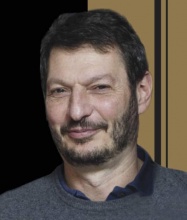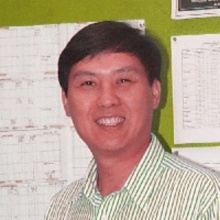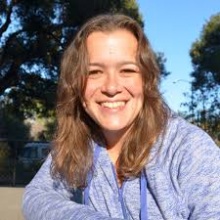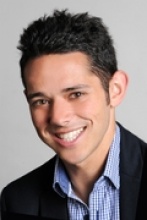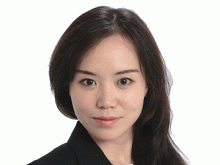CPS Events
Easy, Hard or Convex? The Role of Sparsity and Structure in Systems Theory
Abstract:
Arguably, one of the hardest challenges faced now by the systems community stems from the exponential explosion in the availability of data, fueled by recent advances in sensing and actuation capabilities. Simply stated, classical techniques are ill equipped to handle very large volumes of (heterogeneous) data, due to poor scaling properties, and to impose the structural constraints required to implement ubiquitous sensing and control. For example, the powerful Linear Matrix Inequality framework developed in the past 20 years and associated semidefinite program based methods have proven very successful in providing global solutions to many control and identification problems. However, in may cases these methods break down when considering problems involving just a few hundred data points. On the other hand, several in-principle non-convex problems (e.g identification of classes of switched systems) can be efficiently solved in cases involving large amounts of data. Thus the traditional convex/non-convex dichotomy may fail to capture the intrinsic difficulty of some problems.
Bio:
Mario Sznaier is currently the Dennis Picard Chaired Professor at the Electrical and Computer Engineering Department, Northeastern University, Boston. Prior to joining Northeastern University, Dr. Sznaier was a Professor of Electrical Engineering at the Pennsylvania State University and also held visiting positions at the California Institute of Technology. His research interest include robust identification and control of hybrid systems, robust optimization, and dynamical vision. Dr. Sznaier is currently serving as an associate editor for the journal Automatica and as chair of the IFAC Technical Committee on Robust Control. Past recent service include Program Chair of the 2017 IEEE Conf. on Decision and Control, General Chair of the 2016 IEEE Multi Systems Conference, Chair of the IEEE Control Systems Society Technical Committee on Computational Aspects of Control Systems Design (2013-2017), Executive Director of the IEEE CSS (2007-2011) and member of the Board of Governors of the CSS (2006-2014). He is a distinguished member of the IEEE Control Systems Society and a Fellow of the IEEE for his contributions to robust control, identification and dynamic vision. A list of publications and current research projects can be found at http://robustsystems.coe.neu.edu.
CPSRC Seminar: Observability of Dynamical Systems and Optimal Sensor Placement
Abstract:
In this talk, I will introduce a quantitative measure of partial observability for dynamical systems. For problems with very high dimensions and big data sets, the concept and theory of partial observability are developed using a computational approach. The theory and numerical methods are illustrated using several examples, including optimal sensor placement for data assimilation, PMU placement for power systems, and the detection of swarm coordination strategy of unmanned vehicles.
Bio:
Professor Wei Kang received B.S. and M.S. degrees from Nankai University, China, in 1982 and 1985, respectively, and a Ph.D. degree from the University of California at Davis in 1991, all in mathematics. In 1991-1994, he held a faculty position at Washington University in St. Louis. Since 1994, he has been with the faculty of Applied Mathematics at US Naval Postgraduate School, where he is currently the department chair. He was a Director of American Institute of Mathematics (2008-2011) for business and international collaborations. He was a visiting scientist at Intel (2005) and a consultant of EPRI (2011-2012). He is a fellow of IEEE. Professor Kang’s research interests include computational mathematics and control systems, optimal control and estimation, bifurcations and normal forms, and control system applications.
CROSS/CPSRC Seminar: Getting started with ROS and Gazebo
Abstract:
In large part, the recent advancements in robotics have been made possible by open source tools. Open Robotics, a nonprofit organization dedicated to the development, distribution, and adoption of open source software in robotics, supports two main projects — ROS (Robot Operating System) and Gazebo, a multirobot simulator — both of which are widely used by the global robotics community, including industry, academia, and hobbyists.
ROS is a framework that lets you quickly set up the various parts of a robot and get them all to work together as a meaningful application. ROS does this by setting a common transport layer for all the software inside the robot, from sensors and actuators to decision making. Around the common transport layer, there are several tools built to help developers introspect and diagnose their robots with ease. Gazebo is a simulator that calculates rigid-body dynamics, generates all kinds of sensor data, and allows user interaction through both a programming API and a powerful graphical interface. Some of the uses for Gazebo include robotics competitions, continuous integration, prototyping, machine learning and education.
In this talk, Louise will give an overview of ROS and Gazebo, the problems they've been solving so far and what's in the roadmap for the future, all while walking through a hello world robot example in simulation.
Bio:
Louise Poubel is a software engineer at Open Robotics working on free and open source tools for robotics, like the robot simulator Gazebo and the Robot Operating System (ROS). Louise first got involved with Open Robotics through GNOME’s Outreach Program for Women. Louise grew up in Brazil and went to college in Japan, where she received her BS in electromechanical engineering from Chiba University. She also holds a joint MEng in advanced robotics from École Centrale de Nantes and Warsaw University of Technology, where her research focused on real-time, whole-body human motion imitation by humanoid robots.
Control of Distributed Energy Resources: PDES and Hopfield Methods
Abstract
Renewable energy integration and resilience to disasters motivate the need for flexible resources in electric power systems. Distributed energy resources (DERs), such as electric vehicles and thermostatically controlled loads, represent an intriguing set of distributed assets to provide flexible services in power systems. This talk addresses modeling, estimation, and control for aggregations of DERs. Specifically, the talk is divided into two parts. First, we discuss a partial differential equation (PDE) approach to modeling and estimating aggregations of DERs. Second, we discuss a novel class of methods for controlling DER populations that are mathematically formulated as large-scale mixed integer programs. We call this class of methods "Hopfield Methods."
Bio
Scott Moura is an Assistant Professor at the University of California, Berkeley in Civil & Environmental Engineering and Director of eCAL. He received the Ph.D. degree from the University of Michigan in 2011, the
M.S. degree from the University of Michigan in 2008, and the B.S. degree from the UC Berkeley, in 2006 - all in Mechanical Engineering. He was a postdoctoral scholar at UC San Diego in the Cymer Center for Control
Systems and Dynamics, and a visiting researcher in the Centre Automatique et Systèmes at MINES ParisTech in Paris, France. He is a recipient of the O. Hugo Shuck Best Paper Award, Carol D. Soc Distinguished Graduate Student Mentoring Award, Hellman Faculty Fellows Award, UC Presidential Postdoctoral Fellowship, National Science Foundation Graduate Research Fellowship, University of Michigan Distinguished ProQuest Dissertation Honorable Mention, University of Michigan Rackham Merit Fellowship, and Distinguished
Leadership Award. His research interests include control & estimation theory for PDEs, optimization, machine learning, batteries, electric vehicles, and the distributed energy resources.
How to Hack a Power Grid
Abstract
The proliferation of Information and Communication Technologies (ICT) and Internet of Things (IoT) has enabled revolutionized people’s lifestyle by providing unconventional energy services, such as demand response programs, zero energy homes, and ultra-fast electric vehicle charging. Paired with these privileges are the unprecedented cyber-threats to the power grid, which could result in wide disruption, and in the worst case, large-scale blackouts.
Defending the electric power grid presents a dilemma. On one hand, the grid has one of the largest cyber-infrastructures. Therefore, it is practically impossible to build a bullet-free shell for the entire system. On the other hand, the grid is a dynamic system, wherein the continuity of operation is crucial. Thus, defense efforts need to be nearly real-time and accurate; slower or false detection would lead to physical system instability and incorrect market decisions.
In this talk, we will take the perspective of hackers, examining their goals, limitations, and the potential of launching successful attacks on the power grid.
Bio
Dr. J.K. (Jiankang) Wang is a principal investigator at The Ohio State University (OSU), where she leads the Power System Analysis Research Group. Her research interests include modeling and analyzing cyber-enabled electric power systems and electricity markets. Her recent research focuses on developing analytic and algorithmic tools for practical power system operation and planning, aiming to improve power grid cyber-security, operation reliability, and end-user experience. Her research lab activity collaborates with industry partners and governmental agencies.
Dr. Wang received her Ph.D. in Electrical Engineering and Computer Science from MIT, where she minored in Management with a focus on electricity markets and venture capitalism. In 2014, she joined the department of Electrical and Computer Engineering at OSU as an assistant professor. She also has a joint appointment from the department of Integrated Systems Engineering (ISE). Since July, 2018, she is appointed as the lead technical specialist by California ISO, where her responsibilities include examining the issues of electricity market manipulation, speculation and arbitrage.

